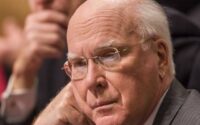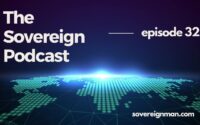Fed’s Powell hopeful inflation can be tamed without pain of Volcker era
Federal Reserve Board Chairman Jerome Powell attends a news conference following a two-day meeting of the Federal Open Market Committee (FOMC) in Washington, U.S., July 27, 2022. REUTERS/Elizabeth Frantz
WASHINGTON, Sept 8 (Reuters) – The Federal Reserve is “strongly committed” to fighting inflation, but there remains hope it can be done without the “very high social costs” involved in prior campaigns to control surging prices, Fed Chair Jerome Powell said on Thursday.
Powell, in a 40-minute webcast interview with Cato Institute President Peter Goettler, was not asked about the U.S. central bank’s policy meeting later this month, when it is expected to raise its target interest rate by either half or three-quarters of a percentage point, and the Fed chief did not volunteer any information on his preference.
Investors in contracts tied to the Fed’s policy rate currently anticipate the larger 75-basis-point increase, an expectation that rose through the day after the European Central Bank hiked its policy rate by three-quarters of a percentage point, and a decline in U.S. weekly jobless claims pointed to continuing strength in the labor market.
Register now for FREE unlimited access to Reuters.com
But Powell did restate what has now become the Fed’s message of the moment: Policymakers won’t back down on planned rate increases.
“We need to act now, forthrightly, strongly as we have been doing, and we need to keep at it until the job is done,” Powell said. “The Fed has and accepts responsibility for price stability.”
“My colleagues and I are strongly committed to this project and we will keep at it until the job is done.”
The Fed will hold its next policy meeting on Sept. 20-21, when it will issue updated economic projections and almost certainly announce the fifth consecutive increase in the target federal funds rate. The release of amonthly U.S. consumer price inflation report next week will be the final major piece of data for policymakers to evaluate in making that decision.
Information since the Fed’s July 26-27 meeting has given some small sense that the pace of inflation, which has been running at 40-year highs, may be slowing, but not enough for policymakers to feel confident it has peaked. read more
The job market, meanwhile, remains strong, with an Atlanta Fed wage tracker showing earnings through August continued growing at a 5.7% annual pace, a rate some policymakers feel is inconsistent with the Fed’s 2% inflation target.
In addition to market-based expectations, more economists are also now anticipating a 75-basis-point increase this month. Economists at Jefferies and Nomuraon Thursday changed their previous view that the Fed would downshift to a half-percentage-point hike after larger increases in June and July, following on the heels of Goldman Sachs economists on Wednesday.
“The U.S. is in a luxurious position of a continued strong labor market … there’s a very good chance the Fed can bring down inflation without causing a significant recession,” said Oliver Pursche, senior vice president at Wealthspire Advisors in New York. “The economy and the labor market can absorb a 75-basis-point hike.”
VOLCKER’S SHADOW
The issue confronting the Fed now is just how high and how fast it will need to push borrowing costs to control the worst outbreak of inflation since the 1980s, and whether the monetary tightening can be done without triggering a recession and steep rise in unemployment – a so-called “soft landing.”
New research suggests, however, that the hopeful scenario is out of reach, with a jobless rate that may have to double from the current 3.7% to dependably lower inflation. read more
The updated Fed projections due to be issued at the end of this month’s policy meeting will show if officials now see a risk of rising joblessness as well.
Powell said he continues to hold out hope it can be avoided.
Referring to former Fed Chair Paul Volcker’s fight against inflation in the early 1980s, when Fed policy triggered a recession and the unemployment rate topped 10%, Powell noted that Volcker was trying to uproot years of rising inflation expectations that were feeding higher prices and wages.
Volcker, who was widely credited with winning that battle, “followed several failed attempts” by earlier heads of the Fed to lower inflation, Powell said.
Powell said that because inflation expectations this time remain largely anchored around the central bank’s 2% target, the outcome could be better.
“We think we can avoid the kind of very high social costs that Paul Volcker and the Fed had to bring into play” in the 1980s, Powell said.
But he added, as his colleagues have in recent remarks, that even if unemployment starts to rise more than expected, the Fed’s focus will remain on price control.
“History cautions against prematurely loosening policy,” he said.
Register now for FREE unlimited access to Reuters.com
Reporting by Howard Schneider
Additional reporting by Ann Saphir, Lindsay Dunsmuir and Stephen Culp; Editing by Chizu Nomiyama and Paul Simao
Our Standards: The Thomson Reuters Trust Principles.
[ad_2]
Source link


